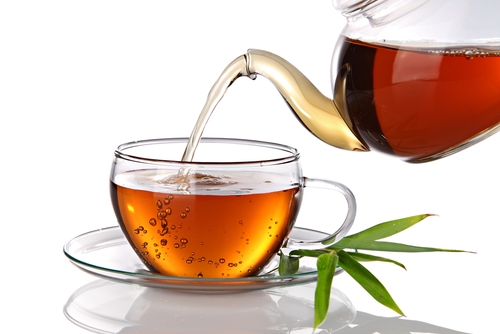Types of Teas and Their Health Benefits
Tea is a name given to a lot of brews, but purists consider only green tea, black tea, white tea, oolong tea, and pu-erh tea the real thing. All tea is produced from a plant called Camellia sinensis a shrub native to China and India, and contains unique antioxidants called flavonoids. The most potent of these, known as ECGC, may help against free radicals that can contribute to cancer, heart disease, and clogged arteries. The thousands of different varieties of teas available in the world only vary by the region it was grown, the time of year picked, and the processing method. There are some types of tea sometimes called herbal tea, which do not actually contain the Camellia sinensis plant. Each type of tea has its own characteristics including a different taste and differing health benefit
Here’s what some studies have found about the potential health benefits of tea:
White tea: Uncured and unfermented white tea is the purest and least processed of all teas. This loose leaf tea brews a light color and flavor. One study showed that white tea has the most potent anticancer properties compared to more processed teas.
Green tea: Green tea is the most popular type of tea, mainly because it is the beverage of choice in Asia. Made with steamed tea leaves, it has a high concentration of EGCG . Green tea’s antioxidants may interfere with the growth of bladder, breast, lung, stomach, pancreatic, and colorectal cancers; prevent clogging of the arteries, burn fat, counteract oxidative stress on the brain, reduce risk of neurological disorders like Alzheimer’s and Parkinson’s diseases, reduce risk of stroke, and improve cholesterol levels.
Pu-erh tea: Made from fermented and aged leaves. Its leaves are pressed into cakes. One animal study showed that animals given pu-erh had less weight gain and reduced LDL cholesterol.
Oolong tea: Antioxidants from oolong tea were found to have lower bad cholesterol levels.
Black tea: Made with fermented tea leaves, black tea has the highest caffeine content and forms the basis for flavored teas like chai, along with some instant teas. Studies have shown that black tea may protect lungs from damage caused by exposure to cigarette smoke. It also may reduce the risk of stroke.
Herbal Teas
Made from herbs, fruits, seeds, or roots steeped in hot water, herbal teas have lower concentrations of antioxidants than green, white, black, and oolong teas. Research claims that they help to shed pounds, stave off colds, and bring on restful sleep are largely unsupported.
Here are some:
Chamomile tea: Its antioxidants may help prevent complications from diabetes, like loss of vision and nerve and kidney damage, and stunt the growth of cancer cells.
Echinacea: Often touted as a way to fight the common cold.
Hibiscus: Drinking three cups of hibiscus tea daily lowered blood pressure in people with modestly elevated levels.
Blackberry: Leaves Picked, dried in the sun and infused with boiling water, blackberry leaves are the essence of most berry-flavored teas. Studies suggest that the leaves contain a healthy dose of flavonoids, which are known for their antioxidant activity.
Cardamom Tea: Cardamom is an evergreen plant that’s grown mainly in India and Guatemala. Cardamom tea helps treat indigestion, prevents stomach pain, and relieves flatulence. It also works as a good expectorant and relieves coughs. Cardamom tea helps to detoxify the caffeine from your system. Drinking a cup of cardamom tea is helpful for women who experience mood swings during their menstrual period.
Peppermint Tea: Peppermint is a fragrant herb that makes for a soothing drink. Peppermint helps you digest foods better and also reduces flatulence and digestive issues. A cup of peppermint tea will ease nausea and vomiting, especially if you suffer motion sickness. The natural mint flavor of the herb helps to freshen up your breath. Other health benefits of this tea are control of muscle aches and chronic pain, clearing of congestion and mild coughs, mild asthma and reduction of stress.






